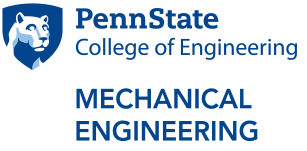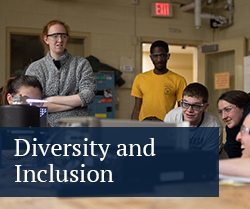
The Penn State Department of Mechanical Engineering celebrates the contributions of its 17 women faculty (29%), who are making significant strides in a vast array of research areas, like additive manufacturing, engineering education, design, smart materials, robotics, heat transfer, fluid dynamics, combustion, controls, medical devices and biomechanics.
Here are the stories and achievements of these women, who are inspiring change and impacting tomorrow.
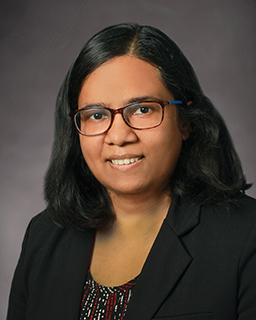
Amrita Basak is an assistant professor of mechanical engineering. Her multidisciplinary research group focuses on developing process-structure-property linkages for metallic, polymeric and ceramic materials using additive manufacturing (AM). The team implements computational modeling, custom experiments and machine learning to advance AM.
“I feel incredibly blessed to be in ME. Setting up an experimental laboratory during this challenging time was supposed to be super hard – but somehow the department support system and my amazing students made it a fun experience,” she said. “It’s truly a privilege to be surrounded by such a talented pool of faculty, staff and students.”
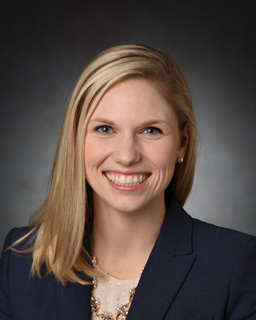
Catherine G.P. Berdanier is an associate professor, Clyde W. Shuman Jr. and Nancy Shuman Early Career Professor of Mechanical Engineering and the director of the online MSME Program. She directs the Engineering Cognitive Research Laboratory (E-CRL), which specializes in engineering education research focused on graduate students and methodological development. She earned an NSF CAREER grant to study master’s-level departure from the engineering doctorate in 2019.
“I am so proud to be in the ME department and I can honestly say that I look forward to department faculty meetings (even on Zoom)! How many people can say that?!” she said. “We are all valued for our ideas and bring with us the dimensions that come with all our identities.”
She added, “For example, I don’t have to pretend that I don’t have a family or kids for the sake of “rigor” that I know other women colleagues face, and because of that, I can excel and thrive in my research. Penn State ME is a wonderful and unique environment in which to launch my career.”
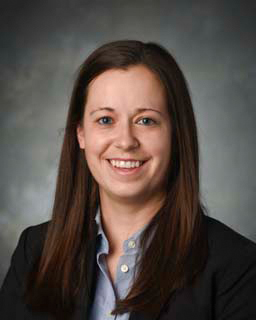
Melissa Brindise is an assistant professor. Her research focuses on experimental fluid mechanics and particle image velocimetry (PIV) combined with methods development for clinically imaged neurovascular and cardiovascular flow analysis. Her current research interests include fluid dynamics associated with cerebral aneurysms, heart disease, single ventricle defects, traumatic brain injury and transition to turbulence in unsteady flows.
“Even from a distance, I have appreciated the inclusive environment within the department and the genuine excitement and support from fellow faculty,” she said.
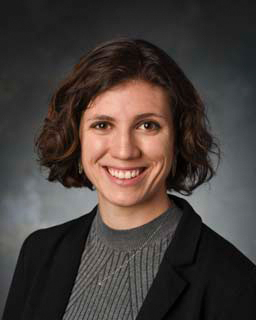
Margaret Byron directs the Environmental and Biological Fluid Dynamics Laboratory as an assistant professor. She works at the interface of biology, physics and both mechanical and environmental engineering. She and her students study the fluid dynamics of intermediate-Reynolds number phenomena in two main areas: the transport of large nonspherical particles in turbulence and the propulsion, navigation, and control strategies used by millimeter-to-centimeter scale aquatic invertebrates. Her broad research interests include turbulence, particle-laden flows, environmental fluid dynamics, and the biomechanics of swimming.
"I count myself very fortunate to be surrounded by the inspiring, talented women of Penn State ME!” she said. “This engaging and supportive community is an amazing resource for generating ideas, learning about new topics, commiserating over failures, and celebrating successes.”
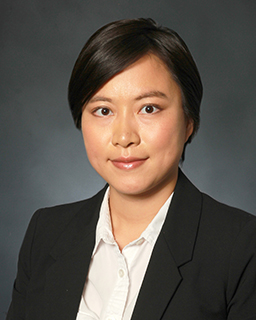
Jing Du is an associate professor of mechanical engineering. She received the courtesy appointment as affiliate associate professor in the Department of Biomedical Engineering in 2021. Her current research focuses on mechanics and materials, biomechanics and biomaterials.
Du said, “Our department has a family feel. It is always supportive and genuinely wishes us success.”

Katie Fitzsimons directs the Human-Centered Robotics Lab as an assistant professor. Her work focuses on problems at the intersection of biology, robotics and control, with applications to physical human-robot interaction, haptics, interface design and robotic learning from demonstration. She and her students perform experimental work on the physical interactions between robots and humans and develop novel algorithmic methods to shape the interactions between people and autonomous systems.
“I joined Penn State at a strange time, but my new colleagues have gone out of their way to make me and my family feel welcome,” she said. “The faculty and staff of ME never hesitates to answer questions and offer whatever support they can as I navigate my new role as a faculty member.”
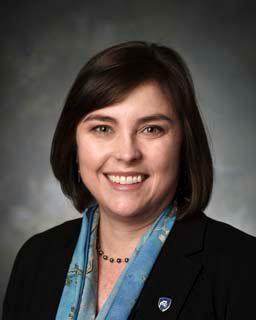
Mary Frecker is the department head of mechanical engineering, a professor of mechanical engineering and biomedical engineering, the Leighton Riess Chair in Engineering and the founding director of the Center for Biodevices at the Penn State. She has previously served as associate department head for the graduate programs in mechanical and nuclear Engineering and as the director of the Learning Factory. As co-director of the Engineering Design Optimization Group (E-DOG) lab, Frecker conducts research in the area of optimal design of adaptive structures, targeted at applications ranging from aerospace systems to medical devices.
“One of the great things about being a faculty member in Penn State ME is the abundance of opportunities to collaborate with top-notch researchers across disciplines,” she said. “My women faculty colleagues in particular exhibit this collaborative spirt and inspire me as a researcher, teacher and leader.”
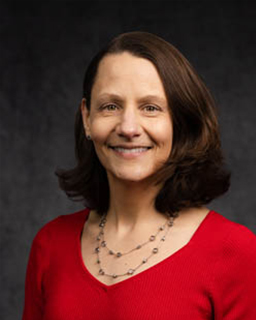
Andrea Gregg is the director of online pedagogy and associate research professor. She facilitates faculty development to maximize teaching and learning efficacy throughout the ME curriculum, with a primary focus on online learning. She is also responsible for leading quality instructional design for residential and online offerings; facilitating an activity community of practice for ME faculty dedicated to continuous quality improvement in pedagogy; and leading and evaluating emerging educational technology innovations such as digital badges, adaptive learning and learning analytics.
Gregg said, “Given the relatively low percentage of females in mechanical engineering, it is an amazing experience to be a faculty member in the Penn State ME department. We have an incredibly strong cohort of female faculty who inspire me daily.”
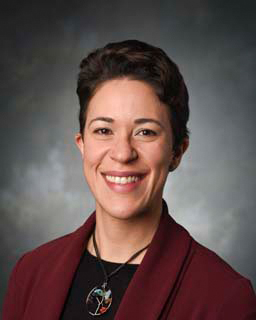
Tamy Guimarães joined the department as an assistant professor in July 2021. She received her doctorate from Virginia Tech and her bachelor’s from Universidade Federal do ABC in Brazil. She spent three years in Munich, Germany, where she conducted postdoctoral research in microfluidics and worked as a business development manager at a startup. Her research interests involve the development of instrumentation for aerodynamic measurements in gas turbines and wind tunnels using additive manufacturing.
“The pandemic forced me to postpone my start date, and everyone in the department has been extremely supportive,” she said. “I feel very lucky to be a part of a department that encourages and provides their faculty members with the tools to succeed.”
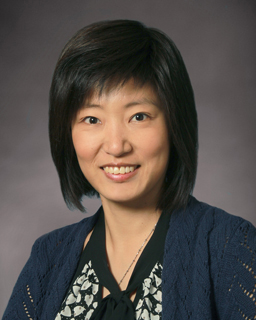
Siu Ling Leung is an assistant teaching professor and the director of undergraduate laboratories. She is developing a new engineering laboratory curriculum in the department to empower student's cognition skills and equip students to solve real-world challenges. Her research interests focus on creating new learning tools to enhance student engagement.
She said, “Being an ME female faculty at Penn State, I feel included and supported. This feeling motivates me to challenge myself and to believe that nothing is impossible!”
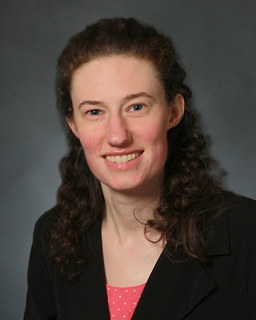
Anne Martin is the Martin W. Trethewey Early Career Professor in Mechanical Engineering. Her research interests include understanding the causes of and developing interventions for impaired human locomotion by applying nonlinear, robot control theory to human gait. To accomplish this, she develops theoretical modeling and control techniques, simulates and analyzes different walking strategies, and performs human subject experiments, some of which involve exoskeletons or wearable sensors.
She said, “I really like that the Penn State ME department is supportive of everyone and wants their faculty and students to succeed.”
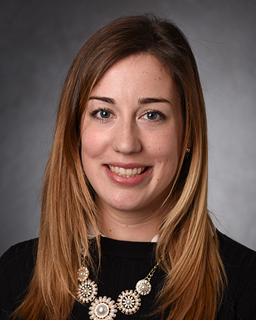
Jessica Menold is an associate professor, Hartz Family Early Career Professor of Engineering Design and Mechanical Engineering and the associate director of outreach and inclusion at the Learning Factory. She is the director of the Technology and Human Research in Engineering Design (THRED) lab, which investigates the intersections between humans, designed systems and products and design processes.
“I love being a part of the ME community here at Penn State. It is such a welcoming and inclusive group of faculty. We have so much fun together in and out of the department!” Menold said. “This group has made it a joy to work here, and I look forward to continued collaborations, random campus walks and happy hours with everyone.”
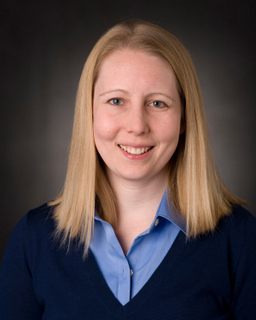
Jacqueline O'Connor is a professor of mechanical engineering and associate department head for faculty. Her research laboratory, the Reacting Flow Dynamics Lab, focuses on issues of unsteady combustion and fluid mechanic phenomena in power and propulsion technologies. She teaches courses in thermodynamics, IC engines, gas turbines and combustion.
“The ME department has a truly unique culture - we love coming to work because we really like the people we work with!” she said. “We've built a supportive culture, particularly within the female faculty and staff, that provides each person with the encouragement and strength necessary to succeed.”
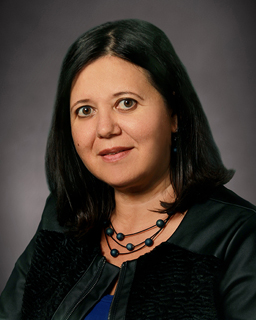
Zoubeida Ounaies is a professor of mechanical engineering and director of the Convergence Center for Living Multifunctional Material Systems (LiMC2). She leads the Electroactive Materials Characterization Laboratory, an experimental research facility dedicated to advancing the application of smart materials. With her students, Ounaies focuses on the discovery and development of responsive polymer-based materials with unique combinations of mechanical, electrical, magnetic and coupled properties for applications in energy storage, conversion and harvesting.
“I am so inspired by my colleagues and I celebrate their accomplishments and successes. I am committed to advocating alongside them so that our department, college and institution are inclusive and equitable spaces,” she said.

Karen Thole is a distinguished professor of mechanical engineering. She has secured more than $35 million in funding, written 280 peer-reviewed publications and been awarded six patents. In the Steady Thermal Aero Research Turbine (START) Laboratory, she focuses on convective heat transfer to develop new cooling designs for harsh, high temperature environments to increase the energy of efficiency needed in power-producing energy systems, such as gas turbines. In March 2021, she testified in front of Congress to detail research and development pathways for sustainable aviation.
"My ME family is who I draw my daily inspiration from, especially my women colleagues," Thole said. "I am privileged to work with these talented leaders who are making important technical contributions and making our department an inclusive organization."
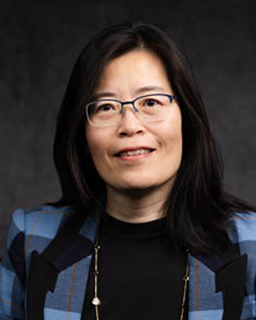
Qian Wang is a professor of mechanical engineering. She received her PhD from Princeton University and BS from Peking University in China. Her expertise lies in dynamics and control, with applications in mechanical systems, biological systems, building systems, computer systems and flight control systems. She is currently working on modeling and control of laser-based additive manufacturing.
“I am so proud of being a member of the ME family. ME at Penn state has established such a strong culture for advocating women faculty, staff, and students,” she said. “As a female faculty, I shall devote myself to help maintain and carry forward this culture.”

